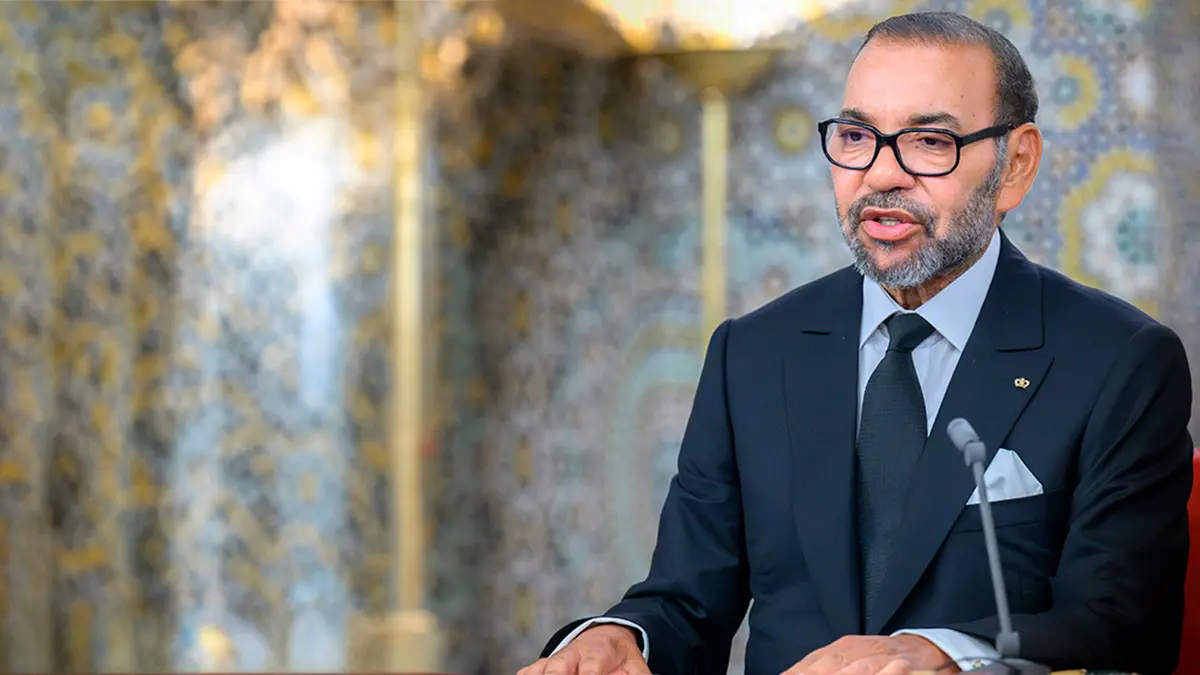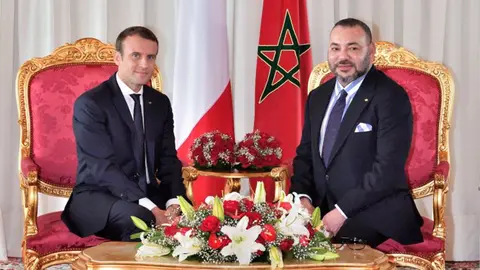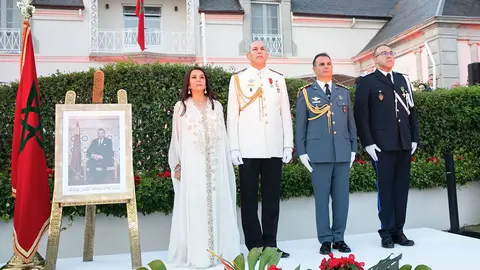Three key concepts in the Throne Speech

I would like to point out that, in terms of these three main axes, HM the King's speech was strongly characterised by the production and use of three key concepts which, it seems to me, determine the deep meaning of the royal message.
1. Moroccan identity
Before addressing the two main issues, the water crisis and the Palestinian question, His Majesty wished to thank God ‘for the many achievements we have accumulated over the years and for the many accomplishments we have made in terms of political and institutional reforms and in terms of consolidating Moroccan identity’.
How should we interpret the fact that the royal discourse includes ‘the consolidation of Moroccan identity’ in the framework of the achievements made? ‘First of all, we must remember that the state-political identity of the Moroccan nation, as of any other nation, is unequivocally defined by its sovereignty, its Constitution and its territory, but there is also the socio-cultural component of this identity, the feeling of belonging and identification with this Moroccan soul built and rebuilt over a long historical process, as defined by King Mohammed VI in his speech of 13 October 2023 in Parliament on the occasion of the opening of the first session of the third legislative year of the 11th Legislature: ‘This drama (Al Haouz earthquake) offers a precious lesson: the authentic values of the Moroccan soul have prevailed,’ the King said, explaining that these values have enabled our country to overcome adversities and crises while allowing us to become even stronger and more determined to continue our journey with confidence and optimism.
‘This beautiful spirit and this noble ideal inhabit us all because they represent, for us, the ferments of unity and cohesion of Moroccan society,’ he said. Thus, the Moroccan identity whose consolidation is valued in the Throne speech, among the many achievements we have accumulated, constitutes a crucial challenge in the socio-political development of the country, reinforcing the legitimacy of institutions and social cohesion.
It should be clarified that this unified national identity is based on founding principles that His Majesty had recalled during his speech in Parliament last October, which refer firstly to religious and spiritual values, advocating moderation and openness towards the other, tolerance and inter-religious and intercivilised coexistence, secondly, the national values that form the basis of the Moroccan nation and whose Monarchy is the cornerstone, and thirdly, the values of solidarity and social cohesion.
It should be noted in this regard that this national identity shaped by the State becomes in itself a tool for strengthening the State, which is truly a valuable achievement consolidated jointly by the King and the people over the last quarter of the century.
2. Royal vision
When His Majesty the King insists in the Throne Speech on the urgency of the water situation in Morocco, it is not only to describe an urgent and worsening situation, or to order the competent authorities to implement urgent and innovative measures to prevent water shortages, but essentially to inscribe the corresponding public policies in the Royal Vision, a proactive and ambitious strategic vision.
It is clear that the real discourse has its full meaning when it is perceived in action, because it is in action that the exercise of real power is manifested, and it is in communicative action that the real vision is realised, this strategic and absolutely crucial vision in the management of the water crisis hitting the country, ‘in accordance with Our Voluntary and Ambitious Strategic Vision, we call for the acceleration of the implementation of major projects’.
Whether it be water transfer projects between water basins, the treatment and reuse of water, the development of a national water desalination industry, or the creation of training courses for engineers and specialised technicians, whether it be measures relating to the protection of the public water domain, the operationalisation of the water police, the fight against the phenomenon of abusive exploitation and anarchic pumping of water, all these projects and measures must fit into the framework of the water crisis, all these projects and measures must fit perfectly into a strategic vision, a real, ambitious and voluntary vision, which does not tolerate any negligence, any delay, any mismanagement, which ensures the activation of coordination and consistency between water policy and agricultural policy, which encourages technological innovation and the exploitation of clean energy potential.
This strategic vision, recalled and shared by the King with the nation, is of great importance insofar as it makes it possible to define a clear direction, to mobilise actors and authorities in the face of uncertainty, to anticipate risks and to coordinate actions.
3. Extremists on both sides
On the Palestinian question, the royal discourse recalls that Morocco is committed in an exemplary and responsible manner to food and medical aid in Gaza, but also to constructive initiatives aimed at finding practical solutions for a definitive solution to the conflict.
Indeed, Moroccan diplomacy, under the wise leadership of His Majesty King Mohammed VI, reacted clearly and firmly after the bombardment by Israeli forces of the ‘Al Maamadani’ hospital, calling for an end to the hostilities, respecting international humanitarian law and working to prevent the region from sinking into a new escalation and new tensions, and when Morocco, whose sovereign chairs the Al-Qods Committee, calls for civilians not to be attacked, it clearly and sincerely specifies that they should be protected ‘by both sides’.
It is in the context of this approach of intellectual honesty and political responsibility that, when His Majesty calls for a departure from the logic of crisis management in favour of finding a definitive solution to the conflict, he places this departure in a perspective which, in parallel with the urgent cessation of hostilities in Gaza, requires the opening of a political horizon capable of establishing a just and lasting peace, within the framework of a two-state solution. But it also requires, in order to revive the peace process between the Palestinian and Israeli sides, ‘closing the door to extremists on both sides’.
A theorem based on geometric common sense that demands that, both in a circle and in politics, extremes touch. Throughout the world, extremists perpetuate conflict, foment violence and make it difficult to find negotiated solutions. The radical religious and ideological positions of these extremists hinder the negotiations and compromises needed to resolve conflicts peacefully and sustainably. In the real perspective, extremists, regardless of their origin, are a real obstacle to peace in the Middle East, because they fuel conflict rather than seek its resolution.
When real discourse names things wisely, it not only allows for a better understanding of the conflict, but helps to find a lasting solution to it. To misname things, said Albert Camus, is to add misfortune to the world.



